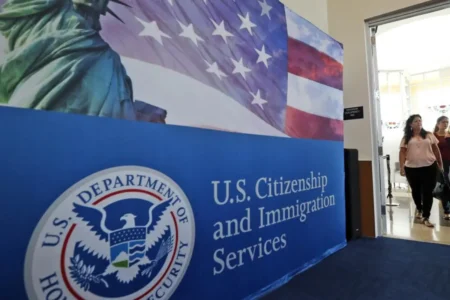With just a month left until the U.S. Presidential elections on November 5, 2024, the race between former President Donald Trump and Vice President Kamala Harris is intensifying. Amidst the political debates and campaign promises, a crucial voice has emerged from the medical community of Indian origin, advocating for comprehensive immigration and healthcare reforms.
Dr. Satheesh Kathula, the President of the American Association of Physicians of Indian Origin (AAPI), has called upon the next U.S. administration to prioritize several urgent issues. In an exclusive interview with PTI, Dr. Kathula emphasized that fast-tracking green cards for Indian-origin medical professionals, addressing physician shortages, and ensuring healthcare access for underserved communities are paramount.
Focus on Immigration Reforms for Physicians
Founded in 1982, AAPI represents over 120,000 Indian-origin physicians in the United States, making it the largest ethnic medical organization in the country. Dr. Kathula highlighted that many Indian-origin physicians, despite having served in the U.S. for over 15-20 years, are still working on H-1B visas. He expressed concern that physicians are grouped with other H-1B professionals in sectors like technology, delaying their pathway to permanent residency.
“We need to fast-track green cards for these medical professionals. Many of them are serving in underserved regions where healthcare is already in crisis. If these doctors leave due to visa uncertainties, the healthcare systems in some towns could collapse,” Dr. Kathula stated.
He noted that these physicians often work in areas that lack local doctors, and their departure could lead to severe healthcare disruptions. “They play a critical role in keeping small-town hospitals and clinics operational, especially in communities heavily reliant on H-1B physicians,” he added.
Healthcare Access and Physician Shortages
Dr. Kathula also called attention to the pressing issue of physician shortages in the U.S., urging the next administration to create more residency positions, invest in medical education, and open additional medical schools. He pointed out that by 2030, the U.S. will require around 125,000 more physicians to meet growing healthcare needs. “Nurse practitioners and physician assistants are doing a commendable job, but we need more doctors,” he stressed.
He advocated for prioritizing international medical graduates, particularly those from India, to ensure that they can practice and serve in communities across the U.S. These graduates, according to Dr. Kathula, bring diversity and much-needed expertise to underserved areas.
Technology in Medicine and Healthcare Reforms
Dr. Kathula highlighted that technology in medicine is another area that requires immediate attention. From telemedicine to cutting-edge medical devices, technological advancements can revolutionize healthcare delivery. He urged the next administration to invest heavily in healthcare technology and research to ensure innovative care models that can benefit patients nationwide.
“Proper funding for research and innovation in healthcare must be a priority,” he said, while also calling for comprehensive healthcare reforms that make healthcare more affordable and accessible to all.
Addressing Discrimination and Diversity
AAPI’s President also emphasized the need for the U.S. government to address issues of discrimination and promote diversity within the medical community. He pointed out that one in every seventh patient in the U.S. is treated by a physician of Indian origin, underscoring their significant role in the healthcare system.
“Physicians of Indian origin are contributing immensely to this country’s healthcare,” Dr. Kathula remarked, adding that their efforts during the COVID-19 pandemic further demonstrated their importance. AAPI raised over five million dollars and provided essential medical equipment to both the U.S. and India during the crisis.
Strategic U.S.-India Relationship
In addition to immigration and healthcare reforms, Dr. Kathula touched upon the broader U.S.-India relationship. He noted that the Indian diaspora in America plays a vital role in strengthening the strategic partnership between Washington and New Delhi. He expressed optimism that under the next U.S. administration, this relationship would continue to grow, especially in areas like trade, defense, and technology.
“The Indian diaspora has become an influential force in America, contributing not only to the economy but also to the country’s diplomatic relationships,” Dr. Kathula said. He pointed out that the U.S. and India share common concerns about China’s growing influence in the Indo-Pacific region, and both nations are likely to continue working together to ensure stability in that area.
Looking Ahead: Priorities for the Next U.S. President
As the U.S. gears up to elect its next President, the voices of Indian-origin physicians, like Dr. Satheesh Kathula, are calling for reforms that will have a lasting impact on both immigration and healthcare systems. The challenges faced by physicians on H-1B visas, coupled with the physician shortage crisis, require immediate attention.
“The next White House administration must prioritize healthcare access, immigration reforms, and support for the medical community,” Dr. Kathula concluded. “These issues are not just vital for the Indian-origin physicians but for the entire healthcare system in the U.S.”
Also Read:Gurinder Singh Sandhu: The First Indian-Australian Cricketer
